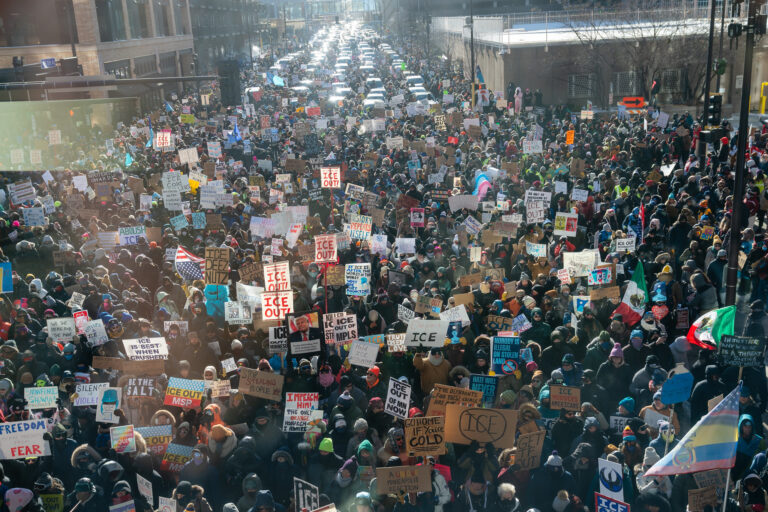
Benjamin Sachs is the Kestnbaum Professor of Labor and Industry at Harvard Law School and a leading expert in the field of labor law and labor relations. He is also faculty director of the Center for Labor and a Just Economy. Professor Sachs teaches courses in labor law, employment law, and law and social change, and his writing focuses on union organizing and unions in American politics. Prior to joining the Harvard faculty in 2008, Professor Sachs was the Joseph Goldstein Fellow at Yale Law School. From 2002-2006, he served as Assistant General Counsel of the Service Employees International Union (SEIU) in Washington, D.C. Professor Sachs graduated from Yale Law School in 1998, and served as a judicial law clerk to the Honorable Stephen Reinhardt of the United States Court of Appeals for the Ninth Circuit. His writing has appeared in the Harvard Law Review, the Yale Law Journal, the Columbia Law Review, the New York Times and elsewhere. Professor Sachs received the Yale Law School teaching award in 2007 and in 2013 received the Sacks-Freund Award for Teaching Excellence at Harvard Law School. He can be reached at [email protected].
Pope Francis delivered an address to the Confederation of Trade Unions in Italy (CISL), and his message is a compelling one. It can be read in its entirety here. For me, there were at least four important points.
- We should not think about labor without understanding, and having due regard for, the human being that labors. Here, Francis is expressing three interconnected ideas. The first is one of the central organizing principles of the labor movement: labor is not a commodity, and when it is treated as a commodity, enormous social harm follows. The second, highly relevant as we think about the future of work and the potential for technological unemployment, is that human flourishing requires meaningful work. The third, though, also critical to our thinking about the future, is that work cannot entirely define human life, and “rest” is also critical. The Pope put it this way:
Person and labour are two words that can and must stay together. Because if we think and talk about labour without the person, labour ends up becoming something inhumane, which by forgetting the person forgets and loses itself. But if we think of the person without work, we are saying something partial, incomplete, because the person is fully realized when he or she becomes a worker: because the individual becomes a person when he or she opens up to others, to social life, when he or she thrives in work. . . . Certainly, the person is not only formed by labour … We must also think of a healthy culture of idleness, of knowing how to rest. This is not laziness, it is a human need.
2. Unions ought to embody the world they wish to create, and they ought to fight for a world that is different than the one we currently inhabit. Francis calls this the prophetic role of unions. In far more prosaic terms, we might understand it as a critique of business unionism. In his words:
The union is an expression of the prophetic profile of society. The union is born and reborn every time that, like the biblical prophets, it gives a voice to those who have none, denounces those who would “sell the needy for a pair of sandals” (cf. Amos 2: 6), unmasks the powerful who trample the rights of the most vulnerable workers, defends the cause of the foreigner, the least, the discarded. As shown by the great tradition of the CISL, the union movement has its great seasons when it is prophecy. But in our advanced capitalist societies, the union risks losing its prophetic nature, and becoming too similar to the institutions and powers that it should instead criticize. The union, with the passing of time, has ended up resembling politics, or rather, political parties, their language, their style.
3. Unions must do more than defend their own members. Indeed they must “innovate” – that’s Francis’ word – by reaching the unemployed and those that “do not yet have rights.”
4. Finally, and most broadly: “There is no good society without a good union, and there is no good union that is not reborn every day in the peripheries, that does not transform the discarded stones of the economy into its cornerstones.”









Daily News & Commentary
Start your day with our roundup of the latest labor developments. See all
March 3
In today’s news and commentary, Texas dismantles their contracting program for minorities, NextEra settles an ERISA lawsuit, and Chipotle beats an age discrimination suit. Texas Acting Comptroller Kelly Hancock is being sued in state court for allegedly unlawfully dismantling the Historically Underutilized Business (HUB) program, a 1990s initiative signed by former Governor George W. Bush […]
March 2
Block lays off over 4,000 workers; H-1B fee data is revealed.
March 1
The NLRB officially rescinds the Biden-era standard for determining joint-employer status; the DOL proposes a rule that would rescind the Biden-era standard for determining independent contractor status; and Walmart pays $100 million for deceiving delivery drivers regarding wages and tips.
February 27
The Ninth Circuit allows Trump to dismantle certain government unions based on national security concerns; and the DOL set to focus enforcement on firms with “outsized market power.”
February 26
Workplace AI regulations proposed in Michigan; en banc D.C. Circuit hears oral argument in CFPB case; white police officers sue Philadelphia over DEI policy.
February 25
OSHA workplace inspections significantly drop in 2025; the Court denies a petition for certiorari to review a Minnesota law banning mandatory anti-union meetings at work; and the Court declines two petitions to determine whether Air Force service members should receive backpay as a result of religious challenges to the now-revoked COVID-19 vaccine mandate.